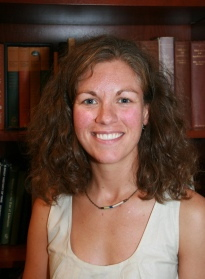
Day One
I wish I could tell you exactly what I’ll be doing on the first day of my new course. But I can’t. What I can say is that the syllabus is mostly finished, and I’ve scheduled meetings with the herpetologist, my Writing Across the Curriculum consultant, and Heidi in Instructional Design. I’m in the process of arranging field trips to ZooAtlanta and Emory University’s Michael C. Carlos Museum, and my grad assistant’s desk copy of The Question of the Animal and Religion came the other day. Between now and Day One, August 24, I need to confirm a couple of guest speakers, draft the first assignments, and figure out what I’m going to say to hook students into my menagerie of a class.
Today I’m happy to be here and meet you. A little about me . . . my name is Molly Bassett, and this is my seventh year in the Department of Religious Studies at Georgia State. I’ve served as the department’s Director of Graduate Studies for six years, and in January, I started co-chairing the AAR’s Teaching Religion Section. My research examines concepts of deity and embodiment in Nahua cultures, and the course I’m writing about here will touch on those themes. I live with my husband Mike, daughter Jennings, and dogs Chance and Owen in Atlanta. When we’re not teaching—Mike teaches high school Chemistry and Physics—you’ll find us running or walking the creatures. I look forward to learning about you and your semester of teaching as we go. Please introduce yourself in the comments.
This is my first post in a semester-long series about teaching a new course. Between now and the end of the term, you’ll find me writing about some of the practical aspects of planning and teaching new material: the arc, objectives, assignments, readings, and, in a few weeks a look back at what actually happened on the first day of class. I’ll update you on students’ reactions to our assignments and events, like working with Instructional Design to produce podcasts using a class set of iPads, visiting the Zoo to “meet” the snakes, and seeing effigies “in the flesh” at the museum. I’ll also be honest about the challenges I/we face: creating community in the classroom, maintaining momentum, and trouble-shooting the unexpected. I won’t be offering advice, but I will be sharing ideas and resources. Feel welcome to contribute your own ideas and reflect on your semester, too.
I’m teaching a new course, I’m writing about it for the Wabash Center, and I’m keeping data on how teaching writing using podcasts—that is, teaching students to write for listeners—changes the experience of Writing Across the Curriculum in Religious Studies. I think it’s going to be a fantastic semester.
As you plan for your own Day One, share thoughts about what makes a first class work well, and if you’re looking for ideas about where to start, check out these teaching centers’ suggestions. Here are some helpful links on the first day of class in the Wabash Center’s scholarship for teaching collection. If you’re a teaching assistant, here are some tips tailored to teaching a first section meeting. Best wishes for a great Day One!
This is the 1st post in this series by Molly Bassett this semester (Fall 2015).
“…and I’m keeping data on how teaching writing using podcasts—that is, teaching students to write for listeners—changes the experience of Writing Across the Curriculum in Religious Studies.”
Very interested to hear more about this and about how it works!
Hi Eric – Thanks! Later in the semester, I’ll be writing about my own attempts to create podcasts for the class and about how the podcasting assignment works out. Have you tried something like this before?
I’m very excited to be following this blog and benefitting from your experiences. Sounds like a terrific class!